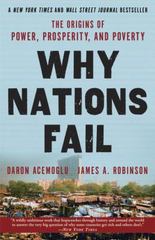Question
n part 2 you saw how economists figured out how to track the performance of the economy - by measuring it's GDP and tracking changes
n part 2 you saw how economists figured out how to track the performance of the economy - by measuring it's GDP and tracking changes in Real GDP across time. From that we can observe changes in macroeconomic performance. We can also divide GDP by the population, and get Real GDP per capita, which macroeconomists use to track changes in a nation's standard of living. Here you want to think about the standard of living as how easy, or hard, it is for the average person to deal with scarcity. A low standard of living means it's very hard - you have an insufficient food supply, difficulty getting safe drinking water, unsafe and unsanitary shelter, difficulty surviving the harsh elements of nature, difficulty treating medical problems. A high standard of living means basically the opposite - you have a stable, bountiful, nutritious food supply, easy access to safe drinking water, safe and sanitary shelter, you can easily protect yourself from the harsh elements of nature, you can easily treat medical problems. In short, it's gotten a lot easier to satisfy your wants, both the basic ones and all the other higher-level ones, and the burden of scarcity is not so heavy.
In this part you also heard macroeconomists say two very important things. Both go along with chapter 1's Big Idea # 6: The importance of Wealth and Economic Growth. They are:
- People in nations that have experienced long term growth in real GDP per capita are better off than their parent(s) were 30 years ago (and much better off than their grand parents 60 years ago, etc...), in terms of their ability to deal with scarcity and the maximum lifetime utility they are able to obtain.
- Economic growth can continue like this indefinitely, thanks to innovation and new ideas. Wealthy nations can continue to see increases in their standard of living, and the poorer nations of today can "catch up" and enjoy that same standard of living in the future. And future generations all over the world can continuously become better off, and better off (again in terms of their ability to deal with scarcity and the maximum lifetime utility they can obtain).
If you pick the first: Do you feel "better off" than your parents? Does the burden of scarcity seem lighter than it was for them? Do you feel like the total enjoyment you can receive over your lifetime is greater than what they could achieve?
Or if you pick the second: Do you agree that economic growth like we have seen over past decades, even centuries in some cases, is sustainable? Are there sustainability issues that concern you (and here I don't just mean environmental)? Can we innovate our way past these concerns? What sort of world do you see for future generations in terms of scarcity and wellbeing?
Step by Step Solution
There are 3 Steps involved in it
Step: 1

Get Instant Access to Expert-Tailored Solutions
See step-by-step solutions with expert insights and AI powered tools for academic success
Step: 2

Step: 3

Ace Your Homework with AI
Get the answers you need in no time with our AI-driven, step-by-step assistance
Get Started


